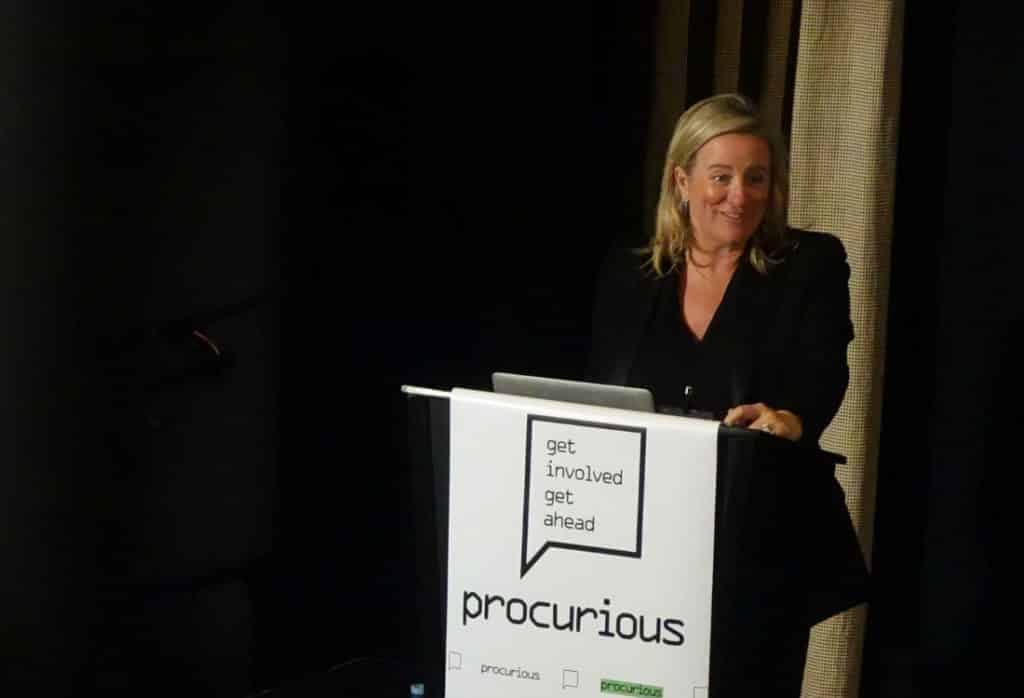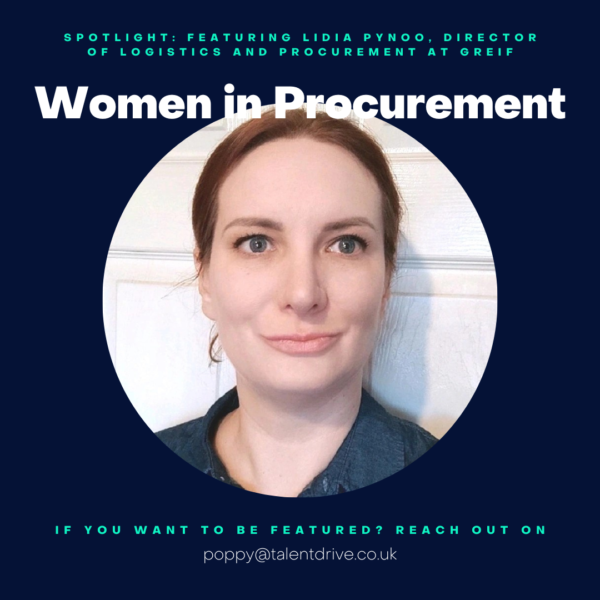This episode of Talent Talks was sponsored by Bridge Procurement. Bridge Procurement helps companies of all sizes to reduce their operating expenditure whilst improving contract governance. They always provide a return on investment and a refreshing approach to outsourced procurement. For more information please visit bridgeprocurement.com
Founder of the world’s first online business network built exclusively for procurement and supply chain professionals, Tania Seary is recognised as one of the influential members of the industry.

In this episode of Talent Talks, Tania provides insights into how different countries have dealt with resource issues, public perception of procurement and how to take advantage of its time in the spotlight and skills in demand in the aftermath of the pandemic.
In this series of short bonus Talent Talks episodes, Martin Smith interviews leading procurement professionals from a range of brands about their views and experiences on the effects of the current COVID-19 pandemic.
This episode of Talent Talks covers:
- How different countries have dealt with resource issues
- Developing local sourcing strategies
- Public image and perception of procurement
- Sustainable sourcing
- Procurement skill sets
- Developing a category strategy
Links & References:
- Talent Drive: https://talentdrive.co.uk/
- Martin Smith: https://www.linkedin.com/in/martinsmith2009/
- Procurious: https://www.procurious.com/
- Tania Seary: https://www.linkedin.com/in/taniaseary/
- Get in touch: info@talentdrive.co.uk
Episode Highlights:
“I think it’ll have serious ramifications for some of the things that we’ve just taken as the basics of supply chain management. You have a global sourcing strategy, outsourcing, payment terms we used to think about and how can we spread those out as long now we’re almost paying immediately, lane infantry now we want to have more buffer stock, you know, everything is going to be challenged, it’s really going to be quite a monumental shift, I think.” 7.28 Tania Seary
“When was the last time we saw supply chain as front page news? You wouldn’t! And PPE used to be only relevant if you worked at Coke. It was just manufacturing fluorescent lights or hazmat suits and what have you, but now the whole world knows what PPE is. And they know the importance of supply chains. So that’s a huge advantage. And as you know, people say when the spotlights on you, you better know how to dance and I think this is our opportunity. We’re in the spotlight now.” 8:11 Tania Seary
“Everyone out there should be pitching for anything that you’ve ever wanted! Whether it’s investment in technology or people, you should be pitching that to the C level right now. If people don’t understand now how valuable a role we play, they never will. They never will. So even if you don’t know which technology system you want to use, just go and pitch for something anyway, start the conversation now because our time in the sun will pass shortly.” 8.45 Tania Seary
“Business strategy is all about beating your competitors. If you don’t know what your competitors are doing, how can you beat them? I never understand these people who don’t socialise outside their social silo. Because what are you going to come up with there? It’s going to be sort of group think. You need to get out in it, see what’s happening in the world. And that’s how you develop strategy. So I think curiosity is a really important trait.” 22:46 Tania Seary
“I don’t think it’s important to be a deep category expert really at all because look how quickly things are pivoting. And in fact, someone with a great category strategy is someone who’s thinking about the next thing or if things were disrupted, not about the status quo.” 25.35 Tania Seary
“I would say that we all need to think like interim workers. I think we all need to be on short KPIs delivering every day, keeping our mind open to that next assignment. You know, I think that’s a great mindset to have. And I think that will be where there’s a lot of demand for people, and that they shouldn’t be afraid about taking an interim assignment. Look, with everything in life, it’s about how you explain your career history isn’t it? I did this because of this, and that’s what I learned. And I tried it. I was curious, and I tried it, and I worked out why I didn’t like it. Lots of employers are going to reward that kind of thinking and behaviour. So I don’t think people should be afraid of it. I think it’s actually a really good strategy, particularly in between long term stints you know, you can’t go from one five year job. Nobody’s in a job for five years anymore. But, you know, one, three, it’s good to have a break, mix it up, recalibrate and move on.” 29:12 Tania Seary


